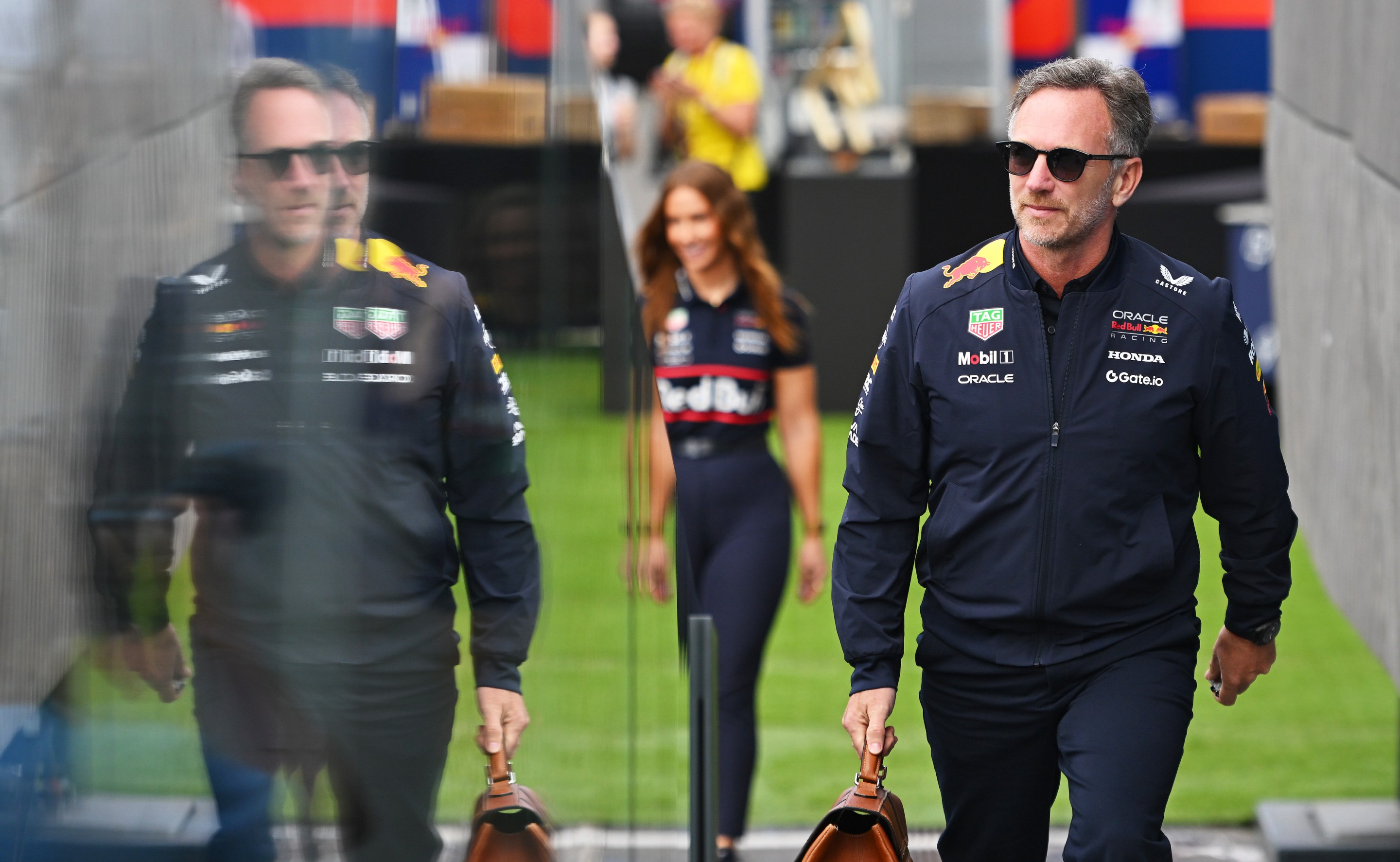After long-lived rumors of a power struggle among Red Bull leadership, and allegations of misconduct by a female Red Bull employee, and the suspension of said Red Bull employee for being "dishonest," and meticulous displays of wifely affection in the paddock, and Max Verstappen throwing his weight behind team advisor Helmut Marko, and the departure of chief technical officer Adrian Newey, and a car increasingly deteriorating in performance, and a billion second drivers, and the scheduling of that misconduct case to go before an employment tribunal in the United Kingdom in early 2026, and rumors of Verstappen leaving the team for Mercedes ... after all that, CEO Christian Horner is out at Red Bull Racing.
The news dropped Wednesday with very little preamble. In its announcement, Red Bull leadership provided no explanation for the choice to fire Horner—or rather, to borrow their phrasing, release Horner from his position with immediate effect. The team simply thanked him for his "exceptional work over the last 20 years," a tidy reminder that Horner had been CEO and team principal since its inception in 2005. Since then, the team has won eight Drivers' Championships and six Constructors' Championships. Depending on how much one values managerial talent, most will credit the vast majority of the success to Newey, Verstappen, and four-time Drivers' Champion Sebastian Vettel, with Horner and Marko only splitting the remainder.
Despite the number of accumulated grievances against Horner, the timing of the news makes it a shock: If this had happened a year ago, it might be similarly seismic, but at least nobody would be confused. There's no use pretending that management would ever care about misconduct if the team continued to win, but the allegations preceded—and their adjudication follows—a huge decline in performance. Red Bull's driver lineup decisions were and remain baffling; its P3 in the Constructors' Championship last year came purely through Verstappen winning the Drivers' Championship, an accomplishment that already looks out of reach this year.
The damage has been done. Newey is gone, the second Red Bull seat is a shambles, and replacing Horner with Laurent Mekies—since 2024 the team principal of Red Bull's sister team—doesn't mitigate that. So why do it at all? The most obvious explanation would be that it's a last-ditch attempt to appease Verstappen, Red Bull's only saving grace, lest he leave for Mercedes. Verstappen's continued loyalty to the team was predicated on a fast car and the presence of Marko; by firing Horner, Red Bull at least guarantees the latter.
If this were the crucial purpose of Red Bull's directive, its effectiveness remains to be seen. According to Dutch reporter Erik van Haren, who led the bulk of the early reporting on the allegations against Horner, Verstappen's camp was not the one to demand Horner's firing, which was reportedly done because of Red Bull's poor performance and decreasing trust in Horner's ability to right the ship. Van Haren also reports that while getting rid of Horner may help Red Bull's case for keeping Verstappen, it certainly does not guarantee that he will remain with the team.
It looks desperate, but Red Bull have to be. Verstappen is worth 10 times more than any executive; if the team loses him, it will be left with nothing. Repeated attempts to find another driver who can handle the latest Red Bull cars have found disastrous results. Subtract Verstappen's points on the season and double the remainder, and Red Bull would rank dead last in the Constructors' Championship, behind even Alpine. It will be good to keep that in mind, should the worst possible outcome occur around the summer break—if, after all that, Verstappen leaves anyway.






